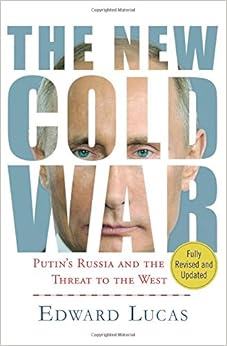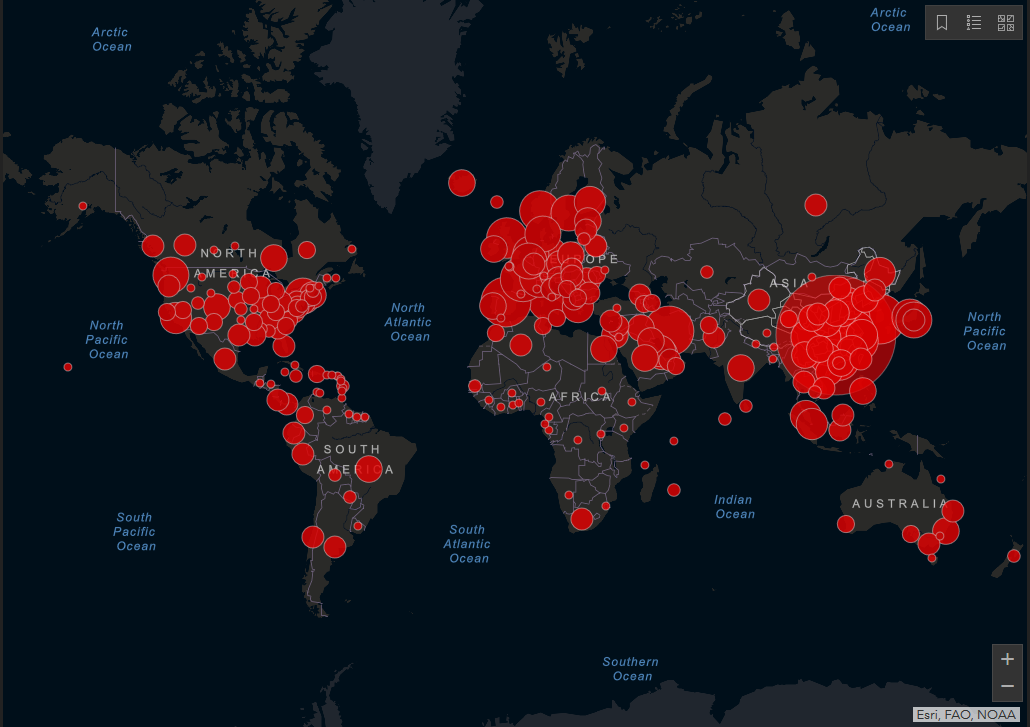> – Nieto Victory in 2012 Election Detrimental for Shaky US-Mexican Alliance, While Obrador Victory Downright Disastrous for US National Security
– Nieto Victory in 2012 Election Detrimental for Shaky US-Mexican Alliance, While Obrador Victory Downright Disastrous for US National Security
– Army Uses New Law to Arrest Police Chief in Nuevo Leon on Charges of Informing Los Zetas of Troop Movements
– Drug Gang Abducts and Beats US Business Exec in Monterrey, Steals Man’s Armored Car, Police Hush Up Incident
– Wealthy Mexicans Flee Monterrey for Houston, Other US Cities, Foreign Businesses Curtail Investment, Bolster Private Security as Cartels Invade City
– “Bishop” of Holy Death Cult Apprehended on Charges of Extortion, Kidnapping, Police Withhold News of Arrest for Two Weeks
For seven decades the Socialist International-affiliated Institutional Revolutionary Party (PRI) ran a single-party dictatorship in Mexico, ceding power to the center-right National Action Party (PAN) in 2000. Beginning in the 1980s President Miguel de la Madrid broke with some of his predecessors, who snubbed the USA in favour of relations with Communist Cuba, by shifting the PRI in a capitalist direction. As a result, the left wing of the party bolted, merged with the Mexican Communist Party and some other leftist groupings, and founded the Democratic Revolutionary Party (PRD) 20 years ago.
Although the Mexican Revolution, which began in 1910 and lasted until 1920, contained several ideological strains, including socialism, Mexico, fortunately, never became a full-blown communist state. This did not prevent President Calvin Coolidge’s administration from referring to the country as “Soviet Mexico.” Hope springs eternal, however, and today Mexico’s far left, including it would seem leftist elements in the now largely centrist PRI, continues to nurse plans for communist revolution south of the US border.
In an effort to rebuild relations with Communist Cuba, on Wednesday Beatriz Paredes, president of the PRI and vice president of the Socialist International, arrived in Havana. There Paredes and Castro (pictured above) talked about the current state of relations between the PRI and the Communist Party of Cuba. Cuban Foreign Minister Bruno Rodriguez also attended the meeting.
Under the PAN presidencies of Vicente Fox and Felipe Calderon, Mexican-Cuban relations turned chilly. For example, in 2004, the Mexican government ended a gentleman’s agreement that permitted Cuba’s Intelligence Directorate to operate with impunity from the Cuban embassy in Mexico City. A PRI victory in the 2012 presidential election would no doubt re-install a pro-Cuban regime south of the Rio Grande, creating strategic implications for US national security. The latter is already endangered by Mexico’s out-of-control drug cartels and questionable border security practices under the tri-national Security and Prosperity Partnership.
During last July’s elections, the PRI captured nine of the 12 governorships up for grabs. In those states where Panistas won, this was only possible through an awkward left-right alliance with the PRD. Significantly, political analysts in Mexico noted that the PAN-PRD coalition won with candidates who were members of neither party, or who were former Pristas.
Still, they were reserved about the PRI’s potential for victory in the 2012 presidential election. “The PRI learned you can’t do politics as usual and think you’re going to win,” said Ana Maria Salazar, a television and radio political commentator in Mexico City. Salazar continues: “The PRI was not a winner in the sense of the expectations. But, clearly, the PRI is a force to contend with. It’s too early to handicap the 2012 race because you don’t know who the candidates are yet. But the party is extremely well-positioned to take over in 2012.”
Six months later, voter preference polls indicate that the PRI is definitely poised to recapture the presidency, even if it does not make any gains in Congress. Last month, according to a poll conducted by Berumen y Asociados and published by El Universal, Enrique Pena Nieto, the telegenic PRI governor of the state of Mexico, received the endorsement of 41 percent of respondents in a possible race against Calderon’s finance minister, Ernesto Cordero, and Andres Manuel Lopez Obrador. In that scenario, Cordero garnered 12 percent support, while Obrador, who ran on the PRD ticket in the 2006 presidential race, gleaned 15 percent.
It goes without saying that a PRD victory in the 2012 election would be disastrous for US national security, since former party chief Obrador openly praised Fidel Castro last year and reportedly met with Gennady Zyuganov, long-time chairman of the (secretly ruling) Communist Party of the Russian Federation, in 2007. At the time, Zyuganov paid little-reported visits to communist counterparts in Cuba, Venezuela, and Mexico. In a private 2009 conversation with Dennis Blair, former director of US National Intelligence, published by WikiLeaks, President Calderon admitted that he believes Obrador is a pawn of Venezuela’s communist dictator, Hugo Chavez.
Both the PRI and PRD would move Mexico into the Communist Bloc’s orbit, only the PRD, as we can see, would move the country faster and farther. A Panista victory next year is therefore essential to sustain the uneasy alliance between the USA and Mexico, as well as the unpublicized role of US military advisors who are training Mexican army officers in counter-insurgency tactics against the drug cartels.
Meanwhile, Mexico’s mafias showed no signs of letting up their bloody rampages in the new year. Last weekend, for example, 51 people succumbed to drug violence, including mutilations, beheadings, drive-by shootings, and summary executions. The murders occurred in southeast Guerrero and northern Chihuahua states, as well as in Mexico City. A grisly discovery near an Acapluco beach included 15 decapitated bodies courtesy of the Sinaloa cartel, which left its calling card in the form of handwritten posters signed “El Chapo Guzmán,” which refers to Mexico’s most wanted criminal.
In Monterrey, Mexico’s most prosperous city and until last year sheltered from the drug war, gunmen fired shots and hurled grenades at the Topo Chico prison, in what might have been a bid to free inmates. Bullets hit the prison walls and a guard post, while a grenade damaged several vehicles parked outside the facility. Police found dozens of bullet casings from assault rifles and a grenade that did not explode on a side street. Yet another grenade blew up on Cuautla Street, shattering the windows of nearby houses and parked cars.
This episode of narcista violence follows the discovery of the partly nude body of 31-year-old convict Gabriela Elizabeth Muñiz Tamez, who was found hanging from a Monterrey pedestrian overpass on December 31. Jailed for kidnapping, Muñiz Tamez had recently escaped as she was being transported from prison to a hospital. It would appear that her partners in crime considered Muñiz Tamez a liability.
In a related story, earlier this month army troops arrested a municipal police chief in Nuevo Leon for allegedly providing assistance to Los Zetas. Jesus Almazan Barbosa served as police chief of San Nicolas de los Garza, a suburb of Monterrey. According to the Mexican army, Almazan ordered some of his officers to monitor the movements of troops so he could report them to the former enforcement wing of the Gulf cartel.
“The cleaning out of police officers in Nuevo Leon is constant, but this arrest should tell mayors that they must push these actions further,” urged Jorge Domene, spokesman for the state government’s security council. He added: “Nuevo Leon has a law on the books that punishes those who spy on the army to assist organized crime groups. It was frustrating before seeing people who were arrested for this getting out immediately with small bail, but now this new law means that those who are arrested for this crime are detained.”
Home to global cement maker Cemex, top Latin American beverage company Femsa, and foreign factories including General Electric and Whirlpool Corp., the Monterrey region generates eight percent of Mexico’s gross domestic product. In early January, a US executive was abducted, beaten and robbed of his armored car in Monterrey, although police declined to comment on the incident.
Some wealthy Mexicans have fled to US cities such as Houston. While no precise figures are available, demand for so-called immigrant investor visas, which require foreigners to invest at least $1 million in the USA, are “surging” in Monterrey. “We are talking about an exodus,” remarked Jose Cornide, a private wealth advisor who assists applicants with the immigration process. No large foreign companies have withdrawn from Nuevo Leon because of the drug war, but some executives are curtailing investments. In fact, companies are now spending five percent of cash flow on security, a cost that was unnecessary only a few years ago.
Although the drug war rages, Mexican authorities have apprehended some more important figures in the country’s criminal underworld. Between December 18 and 20, 2010, police arrested David Romo Guillen, leader of the Traditional Catholic Church, known as the Holy Death cult, and eight other suspects. However, the arrests were not made public until January 4. Romo and cult followers have been charged with extortion and kidnapping.
On December 14, authorities allege, the sect leader and his cohorts, posing as members of Los Zetas, invaded a private residence, stole jewelry, and tied up a domestic worker. The suspects face additional charges for setting up bank accounts to receive ransom deposits, as well as stealing automobiles, jewelry, cash, and documents from various unnamed victims. The suspects have been also been linked to other cases, including an extortion racket “targeting a federal legislator” and the kidnapping of a corporate accountant. “The arrests are politically motivated and plans to build a church in the northeastern section of the capital will not be scrapped,” Romo protested at the time of his detention.
Holy Death, which claims five million adherents worldwide, is headquartered in Mexico City. In recent years, the cult has spread across the country, including the US border region, where followers erect altars, make offerings, and ascribe miracles to their “god,” who is a spitting image of the Grim Reaper. Mexican authorities acknowledge that several drug lords are among the sect’s adherents, since altars and images of the Holy Death have been discovered during police raids.
On January 5, the army announced that it had arrested Jesus Israel de la Cruz Lopez in Tijuana. Cruz Lopez, alias “El Tomate,” is believed to be a lieutenant in the Sinaloa cartel, Mexico’s largest mafia. One year ago, Mexican authorities arrested Teodoro Garcia Simental in La Paz, Baja California Sur. Garcia was a top lieutenant for the Tijuana cartel until he defected to the rival Sinaloa cartel after a power struggle. Over the years, US and Mexican police have discovered a number of sophisticated drug tunnels in the San Diego-Tijuana cross-border region.
President Calderon has touted the fall of the Tijuana cartel, which was pronounced “dead” in 2008, as an example of a “success story” in his government’s war against the mafias. However, a Tijuana police spokesman recently commented that there has been a resurgence of cartel activity in the city.









 Pictured here: Ousted by a parliamentary coup while absent from Lebanon, Saad Hariri (left) and his Turkish counterpart Recep Tayyip Erdogan pose for cameras before a meeting in Ankara, on January 14, 2011. The former prime minister was in Turkey for talks expected to focus on the collapse of his government.
Pictured here: Ousted by a parliamentary coup while absent from Lebanon, Saad Hariri (left) and his Turkish counterpart Recep Tayyip Erdogan pose for cameras before a meeting in Ankara, on January 14, 2011. The former prime minister was in Turkey for talks expected to focus on the collapse of his government.



